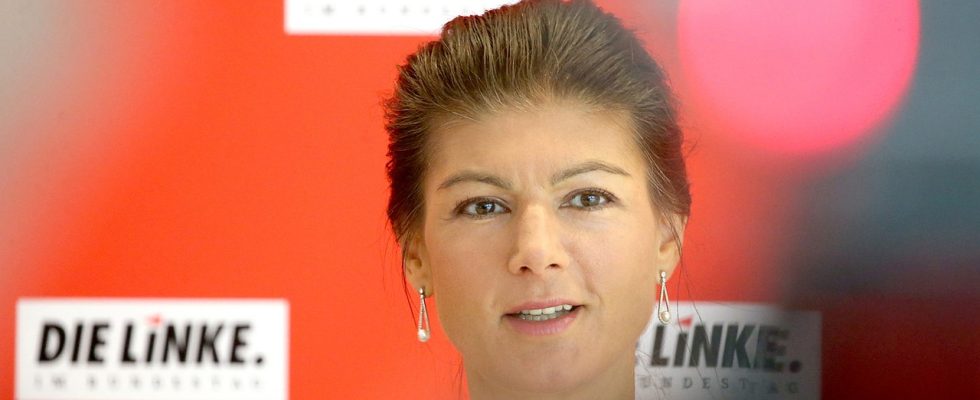The left was once a major political force in Saarland. In the meantime, party icon Lafontaine has left, and the left is a splinter party. If Wagenknecht also leaves, what will remain?
Applause and whistles: The accompanying music to Thomas Lutze’s candidacy for list number 1 in the 2021 federal election was and still is an example of the inner turmoil of the Saarland Left Party. The then state chairman Lutze had just prevailed against the Lafontaine representative and ex-state parliamentarian Dennis Lander. It was also a power struggle between Lutze and party icon Oskar Lafontaine.
After that, events took a turn for the worse: the provincial executive demanded Lafontaine’s resignation. The end is known: Lafontaine resigns from his party. The left only made it into the Bundestag thanks to direct mandates in the federal elections, and a year later it was knocked out of parliament in the state elections in Saarland with 2.6 percent. And that in a federal state in which it once achieved double-digit results.
Even if Lafontaine has been at loggerheads with his party for years, the figurehead of the left in Saarland, which has guaranteed votes for decades, is missing. The base is shrinking, members are leaving the party.
Future with Wagenknecht
At the time, the Saar Left wanted a future without Lafontaine. Today she wants a future with Sahra Wagenknecht, who is also Lafontaine’s wife. The state association thus takes a different position than many other state executives who follow the party decision from Berlin. This provides for a future without Wagenknecht.
Lutze, a member of the Bundestag, sees many intersections between the party program and Wagenknecht’s convictions. “I find it very unfortunate that the dispute had to go so far because it is almost exclusively on a personal level and not on a political one.”
He is hoping for an agreement at the parliamentary group meeting on September 4th, perhaps even at the two-day closed conference at the end of August. Instead of pithy Facebook posts, Wagenknecht should come to parliamentary group meetings more often to promote their positions, says Lutze.
Thomas Lutze has been a member of the Bundestag for Die Linke since 2009.
Destiny as a splinter party?
Left-wing politics can only be enforced together. The Saarland Chairwoman, Barbara Spaniol, is also convinced of this. She fears that the founding of a party by Wagenknecht will result in Italian conditions, i.e. a formerly united left that is splitting up into more and more splinter parties.
“But the issues are on the street: We have high inflation. We have no real basic child security, a chaotic traffic light policy. The left is needed and we have to stand together for that and we are also fighting for it in the Saar state association.”
Quarrels deter voters
However, real opposition work is becoming increasingly difficult due to the concert of dissonances and internal quarrels, hardly noticed by the voters and often rejected.
This applies to the federal government and also to Saarland, where the party has been in the extra-parliamentary opposition since 2022. In the local elections next year, the Left Party must fear slipping into insignificance. In the state elections in 2022, the party was unable to achieve more than four percent in any municipality.
directional dispute? Which directional dispute?
Spaniol hopes to score with social issues such as more daycare staff and basic child security. And with Wagenknecht. Because a party split is likely to cost votes in this country. It is precisely the classic, older clientele of voters who could challenge the party here, and one wants to prevent that.
Spaniol wants nothing to do with an internal conflict between the party leadership and the Wagenknecht camp. Everyone on the left wanted the same thing: climate protection, but of course hand in hand with social security.
Even if the state executive in Saarland – at least publicly – thinks that Wagenknecht’s party is just speculation, there are increasing signs and the voices of those who fear exactly that – and with it the end of the left for the time being. The tablecloth between Wagenknecht and the federal executive board seems to have been cut at the moment, but with a view to the European elections next June and the elections in East Germany in autumn 2024, it doesn’t seem completely impossible that the camps will still pull themselves together. The Saar Left hopes.

